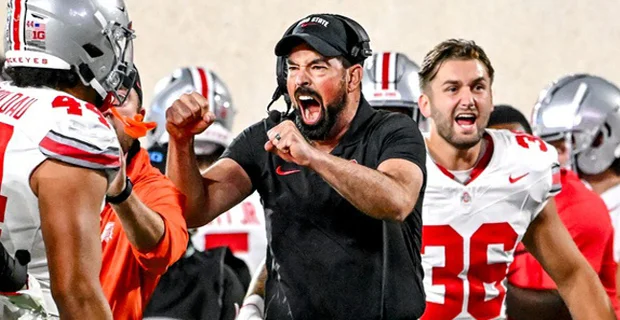EA Sports’ College Football 25: Kalen DeBoer, Kane Wommack, and Ryan Grubb’s Strategic Integration into the Game
The release of EA Sports’ College Football 25 marked a significant moment in the intersection of sports and gaming, offering fans and players alike a dynamic simulation of college football. For coaches like Kalen DeBoer, Kane Wommack, and Ryan Grubb, the game has transcended entertainment, becoming a tool for strategy, learning, and team development.
Kalen DeBoer, the head coach at Alabama, has embraced College Football 25 as an unconventional method to enhance his team’s understanding of the playbook. In discussions with analysts like Pat McAfee and Mike Golic, DeBoer revealed that his players have been using the game to familiarize themselves with offensive schemes and read progressions. He noted instances where players demonstrated knowledge of plays and read progressions, attributing this understanding to their engagement with the game outside traditional practice sessions .
This approach reflects DeBoer’s innovative mindset, leveraging technology to reinforce learning and foster a deeper connection with the playbook. By integrating the game into the team’s preparation, he has provided players with an interactive platform to visualize and internalize strategies, potentially accelerating their on-field performance.
As Alabama’s defensive coordinator, Kane Wommack has recognized the value of College Football 25 in refining defensive tactics. The game’s simulation capabilities allow Wommack to experiment with various defensive alignments and strategies, providing insights into potential outcomes without the physical wear and tear of traditional practice. This virtual environment enables him to analyze opponent tendencies and adjust defensive schemes accordingly, enhancing the team’s preparedness for diverse offensive threats.
Moreover, Wommack’s utilization of the game serves as a modern extension of traditional film study, offering a more interactive and engaging method for players to understand defensive concepts. By incorporating virtual simulations into the team’s preparation, he has fostered a more comprehensive approach to defensive strategy, aligning with contemporary trends in sports analytics and technology integration.
Ryan Grubb, serving as Alabama’s offensive coordinator, has also embraced College Football 25 as a tool for playbook familiarization. The game’s detailed offensive play designs and execution provide players with a virtual walkthrough of plays, allowing them to understand timing, spacing, and decision-making processes. Grubb’s incorporation of the game into the team’s preparation offers an additional layer of learning, complementing traditional methods like film study and on-field practice.
This integration reflects a broader trend in sports towards utilizing technology to enhance player development and understanding. By leveraging the interactive nature of the game, Grubb has provided players with an engaging platform to reinforce offensive concepts, potentially leading to improved execution during actual games.
The innovative use of College Football 25 by Kalen DeBoer, Kane Wommack, and Ryan Grubb underscores the evolving landscape of coaching and player development. By integrating gaming technology into their strategies, these coaches have demonstrated a forward-thinking approach to enhancing team performance. As the lines between traditional coaching methods and technological advancements continue to blur, the incorporation of interactive simulations like College Football 25 may become a standard practice in preparing teams for the complexities of modern football.
In embracing this digital tool, DeBoer, Wommack, and Grubb have not only adapted to the changing dynamics of the sport but have also set a precedent for future coaching methodologies. Their proactive stance in integrating technology into training regimens reflects a commitment to continuous improvement and innovation in the pursuit of excellence on the football field.



